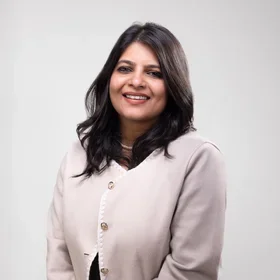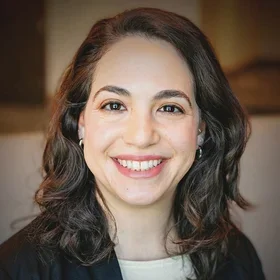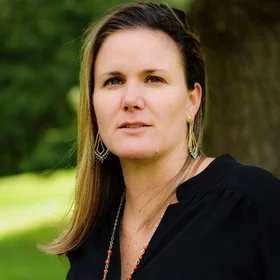Dr. Bobuchi Ken-Opurum is the creator of Re-HOUSED, a decision-support toolkit for sustainable and climate-resilient housing in the Global South. She is also the director of research at the Texas Energy Poverty Research Institute and was recently recognized by Forbes 30 Under 30 in the Energy category. Dr. Ken-Opurum earned her master’s in Sustainability Management from Columbia SPS in 2018 and her Ph.D. at Carnegie Mellon University in 2021. We asked her about her time at SPS, her current work, and her future ambitions. Edited excerpts:
What lessons from your time at SPS have you carried with you?
Be open to learning new topics and exploring new concepts. I took very diverse courses that really enlightened me on different facets of sustainability. I would always read up on different topics such as the circular economy and biomimicry that showed linkages between what I was most interested in and environmental issues that could also be addressed by ideas I had. As I continue to learn about different topics, I apply it in my research in the climate-energy nexus. I work to ensure the projects I work on and research concepts always have multiple co-benefits.
What is one thing you have learned since your time at SPS that you would like to share with current or
prospective students?
In whatever project you find yourself doing, always prioritize working “with” stakeholders rather than only “for” stakeholders. You may have a great solution in mind, but it may not be what is needed by the end users at that moment or at all. In the case of climate resilience, working with stakeholders such as frontline communities allows you to learn rich information about experiences, the evolved/evolving solutions to the risks they have experienced, outcomes of their solutions, and their expectations in what a solution developed would be. This will help improve transparency and guide the development of appropriate strategies.
How do you see your work and research evolving over the next seven years?
I see my work expanding from only software-based solutions such as the Re-HOUSED toolkit into adaptable systems and/or materials for climate resilience and adaptation. I am really intrigued by natural processes and local techniques and hope to research, design, and develop affordable, sustainable, and adaptable building systems and materials for resilience, with the help of local artisans and local experiences. The main goal would be for these systems to be easily accessed and easily deployed because they are low-tech or based on the principles of indigenous and local knowledge in that area. These systems, I hope, will be able to grow with families, be easily deconstructed and moved around from place to place and sustainable with longevity to reduce waste, and be accessible by the urban poor and low-income households while addressing the vulnerabilities to flooding and heat stress.
If you were given access to unlimited resources to dedicate to your work, what problem would you solve first?
There are a lot of areas of climate- and energy-inequity challenges that need to be addressed around the world, but I would want to first continue addressing the problem of limited access to climate information/data for improved decision-making on climate resilience. When households in frontline communities, especially in marginalized communities, have access to information that can support informed decision-making on how to better address climate vulnerabilities, it really only enhances their adaptive capacity and ability to improve their indoor environment and build safer homes and environments.
The Columbia University M.S. in Sustainability Management provides students with cutting-edge policy and management tools they can use to help public and private organizations and governments address environmental impacts and risks, pollution control, and remediation to achieve sustainability. The program is customized for working professionals and is offered as both a full- and a part-time course of study.
The Sustainability Management application deadline for fall 2023 is May 15, 2023. Learn more here.


